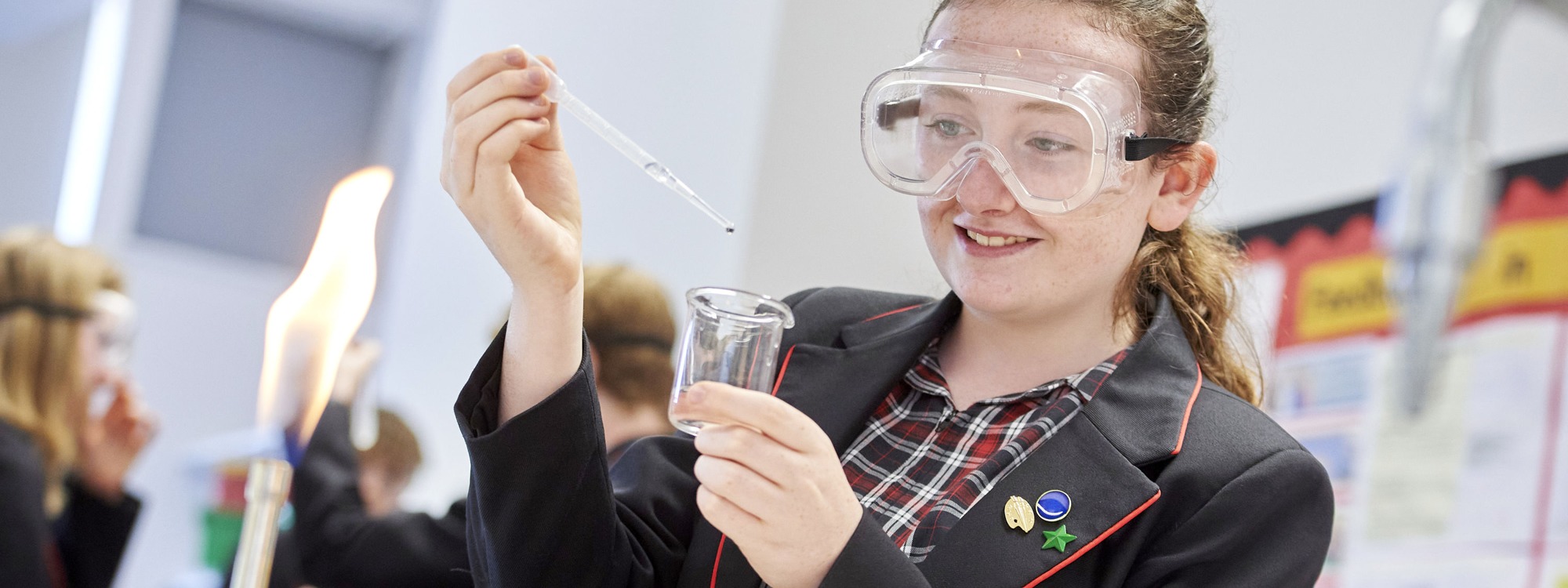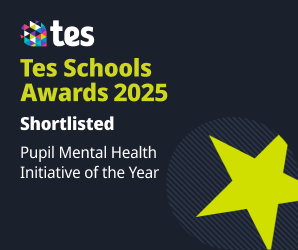Science
What is the intent of the Science Curriculum?
Our Science curriculum fosters a love of learning by nurturing students’ natural curiosity and empowering them to ask questions about the world around them. We encourage learners to look both back into history, to understand the discoveries and struggles that shaped scientific knowledge, and forward into the future, where science and innovation will address future global challenges.
Science at SKA is built on a rigorous spiral curriculum: key ideas in biology, chemistry, and physics are revisited with increasing depth to secure understanding, while allowing teachers to create challenge and depth in learning. This is delivered through themed units that bring science to life in real-world contexts, enabling students to see its relevance, power, and beauty. Science is taught with the MYP and IB principles at its core, conceptual and inquiry-based learning is observable in all lessons.
A central priority is learning through extensive practical investigations. Students plan, carry out, and reflect on experiments that allow them to test ideas, analyse data, and build evidence-based conclusions. By embedding practical skills at every stage, our curriculum ensures that students do not just learn about science but learn through science, gaining the tools to answer questions with confidence and precision.
We are moving our approach to be more flexible and empowering: students are given meaningful choices in how they learn and demonstrate their understanding, fostering independence, ownership, and creativity. Opportunities for interdisciplinary learning make connections across subjects and equipping students with transferable skills such as collaboration, problem-solving, and critical thinking.
Through this curriculum students will develop:
- Powerful knowledge of core concepts, scientific methods, and practical skills.
- Confidence and resilience in problem-solving, experimentation, and communication.
- Innovation and imagination, applying science creatively to real-world challenges.
- Humanitarian values, recognising the role of science in improving lives and sustaining our planet aiding students in becoming courageous global citizens.
- An inclusive appreciation of the diversity of scientific thinkers, ensuring every student feels represented, valued, and inspired.
Our mission is to shape kind, aspirational, and courageous global citizens: young people who are curious, critical, and compassionate; who love science, respect diversity, and feel empowered to use their knowledge to change the world for the better.
At The Skinners’ Kent Academy, we strive to deliver a unique and outstanding science education, inspired by the best in the world, accessible to every student and personalised to support their individual journey.
Years 7, 8 & 9
Here at The Skinners’ Kent Academy, we study the Middle Years Programme (MYP) in Science. The MYP empowers students to inquire into the natural world and understand its connections to society and technology. Learning is concept-driven, skills-based, and inquiry-focused, helping students develop as critical thinkers and problem-solvers. We have a unique and inspiring science curriculum build on the foundations of MYP with themed and project based learning with MYP assessment embedded throughout.
Key Features
- Inquiry-based learning: Students investigate real-world scientific questions through practical work, research, and collaboration.
- Conceptual focus: Big ideas such as change, systems, relationships, and evidence underpin all units, allowing connections across topics and disciplines.
- Skills development: Emphasis on planning and carrying out investigations, analysing and interpreting data, evaluating methods, and communicating findings.
- Interdisciplinary links: Science is taught as a connected discipline (biology, chemistry, and physics together) and encourages application in global contexts.
- Assessment: Students are assessed using MYP criteria:
- Criterion A: Knowing and understanding
-
Criterion B: Inquiring and designing
-
Criterion C: Processing and evaluating
-
Criterion D: Reflecting on the impacts of science
Aims
By the end of KS3, students at Skinners’ Kent Academy will:
- Gain a strong foundation across biology, chemistry, and physics.
- Understand how scientific knowledge develops and is applied.
- Develop collaboration, communication, and problem-solving skills.
- Appreciate science as a dynamic human endeavour that shapes our world.
Year 7 Study:
- The Science Toolkit
- The Alchemists Apprentice
- Small But Might Biology
- Powering a Planet
- Elemental Kingdom
- Anatomy Academy Silver
Year 8 Study:
- Anatomy Academy Gold
- May the force be with you
- Kitchen Chemistry
- The Secret Life of Plants
- Exploring Electricity
- Life & The Earth
- Exploring Waves
Years 10 & 11
At KS4, Students at The Skinners’ Kent Academy follow the AQA GCSE Science course. This builds on the scientific knowledge and skills developed in KS3 and prepares students for further study and careers in science-related fields.
Combined Science: Trilogy
- Students study biology, chemistry, and physics topics in a balanced way.
- This course leads to two GCSE grades (9–1).
- Content covers key themes such as cell biology, chemical reactions, energy, forces, inheritance, and ecosystems.
- Emphasis is placed on practical science skills, scientific literacy, and applying knowledge to real-life contexts.
Separate Sciences (Biology, Chemistry, Physics)
- Students study each of the three sciences as a separate GCSE qualification (three GCSEs in total).
- The content goes into greater depth than the Trilogy course, particularly in areas like genetics, organic chemistry, and particle physics.
- Separate science students develop stronger preparation for A-level science subjects.
Key Features Across Both Routes
- Assessment: All exams are taken at the end of Year 11 (no coursework). Practical skills are assessed through written exam questions based on required practical activities.
- Skills focus: Developing scientific enquiry, problem-solving, data analysis, and evaluative thinking.
- Pathways: Both courses provide a solid foundation for further science study, with Separate Sciences giving the broadest preparation for A-level Biology, Chemistry, and Physics.
Years 12 & 13
At The Skinners’ Kent Academy, Students study IB Biology, Chemistry, or Physics as part of the Career-related Programme (CP). These are IB Diploma Programme (DP) subjects, giving students access to the same rigorous, internationally recognised science curriculum while following a pathway that integrates academic study with career-related learning.
Key Features
- DP subjects within the CP: Students gain the academic challenge of IB sciences alongside the applied, future-focused approach of the CP.
- Inquiry-driven learning: Lessons emphasise scientific investigation, problem-solving, and real-world application.
- Practical emphasis: Laboratory work, experimental design, and data analysis are central, developing confidence and independence in scientific research.
- Interdisciplinary links: Sciences connect with mathematics, technology, environmental studies, and students’ chosen career-related pathways.
- Assessment: Students sit written exams and complete an Internal Assessment (IA) – an independent scientific investigation developing research and evaluation skills.
Aims
Through studying sciences in the IB CP, students at The Skinners’ Kent Academy will:
- Build a strong foundation in scientific principles and processes.
- Develop transferable skills in research, problem-solving, and critical analysis.
- Understand the role of science in society, technology, and global issues.
- Be well-prepared for higher education or STEM-related career pathways.








